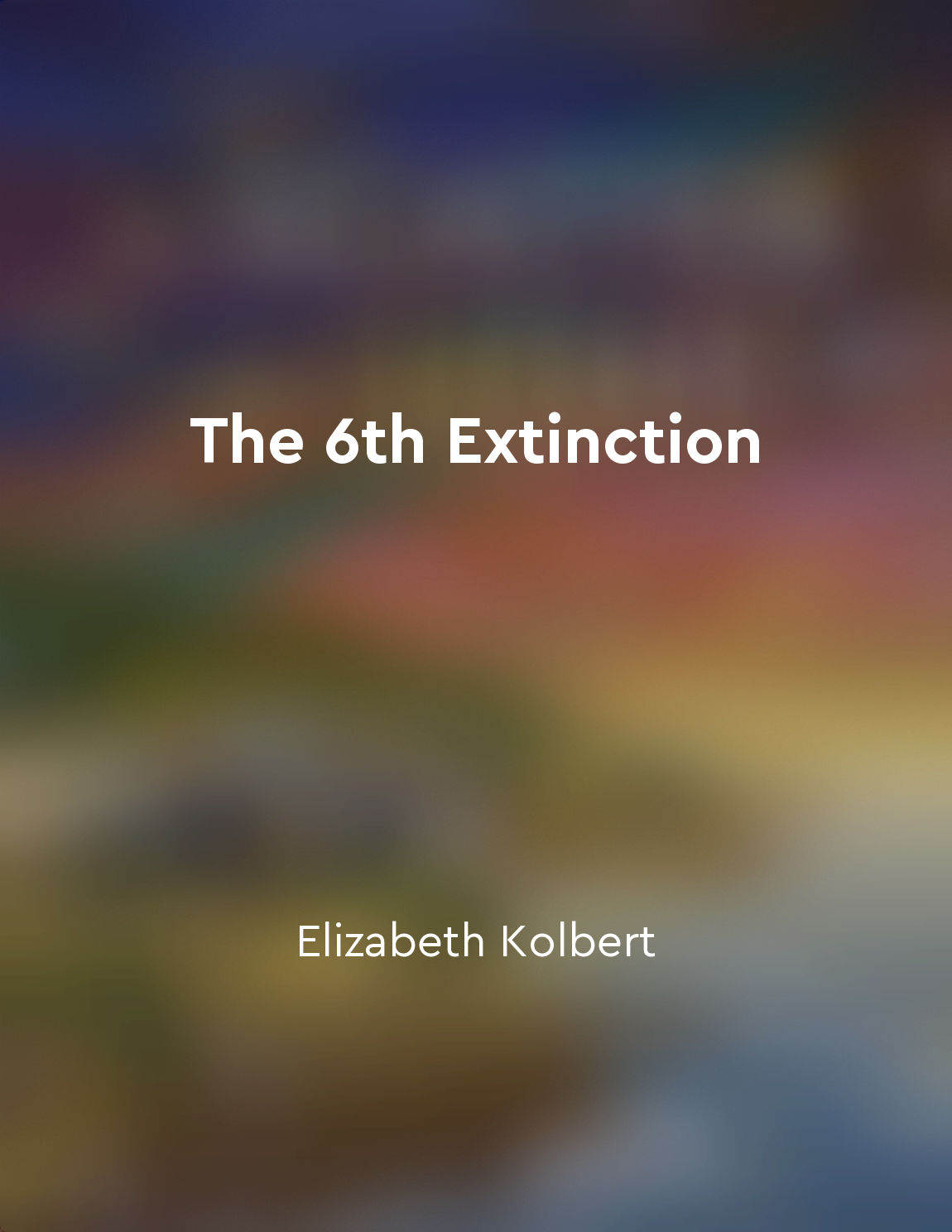Audio available in app
Conservation efforts are crucial in preventing further extinctions from "summary" of The 6th Extinction by Elizabeth Kolbert
The idea that conservation efforts are essential in halting further extinctions is a central theme in 'The 6th Extinction'. The book explores how human activities have led to a dramatic decline in biodiversity, pushing many species to the brink of extinction. By highlighting case studies from around the world, the author illustrates the urgent need for conservation measures to protect vulnerable species and ecosystems. One of the key arguments made in the book is that human actions, such as habitat destruction, pollution, and climate change, are driving the current wave of extinctions. These activities have disrupted natural ecosystems and pushed many species beyond their ability to adapt and survive. Without intervention, the rate of extinction is likely to accelerate, leading to irreversible losses in biodiversity. Conservation efforts play a crucial role in preventing further extinctions by addressing the root causes of species decline. By protecting habitats, controlling invasive species, and implementing sustainable practices, conservationists can help restore balance to ecosystems and give vulnerable species a fighting chance. These efforts require collaboration among governments, NGOs, and local communities to ensure effective protection of biodiversity. The book emphasizes the importance of taking immediate action to safeguard endangered species and ecosystems. Waiting for more evidence or delaying conservation measures could result in irreversible losses and further disruptions to the planet's natural balance. Through a combination of scientific research, public awareness, and policy interventions, conservationists can work towards preserving Earth's rich biodiversity for future generations.- 'The 6th Extinction' serves as a stark reminder of the urgent need for conservation efforts to prevent further extinctions. By highlighting the interconnectedness of species and ecosystems, the book underscores the importance of taking proactive measures to protect biodiversity. Through collective action and a commitment to sustainable practices, it is possible to mitigate the impacts of human activities and ensure a more resilient and biodiverse planet for all.


